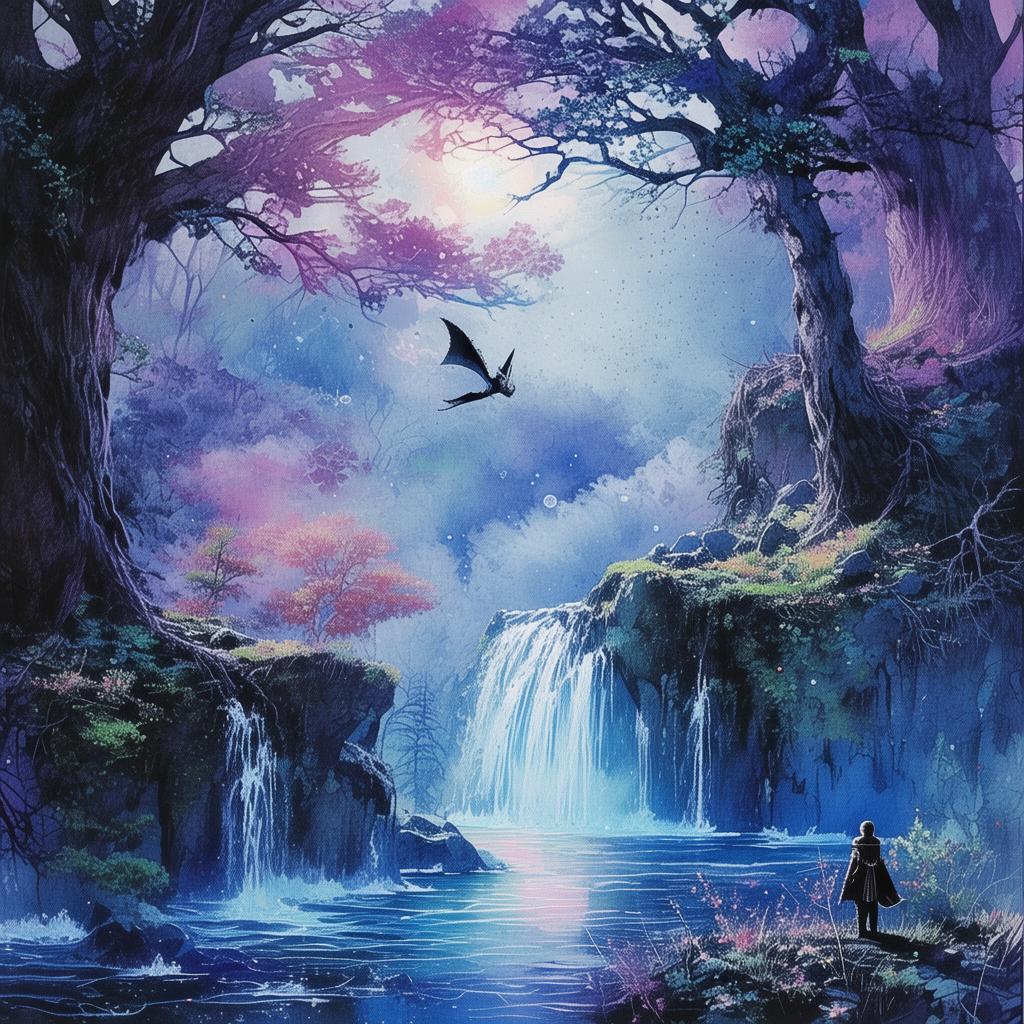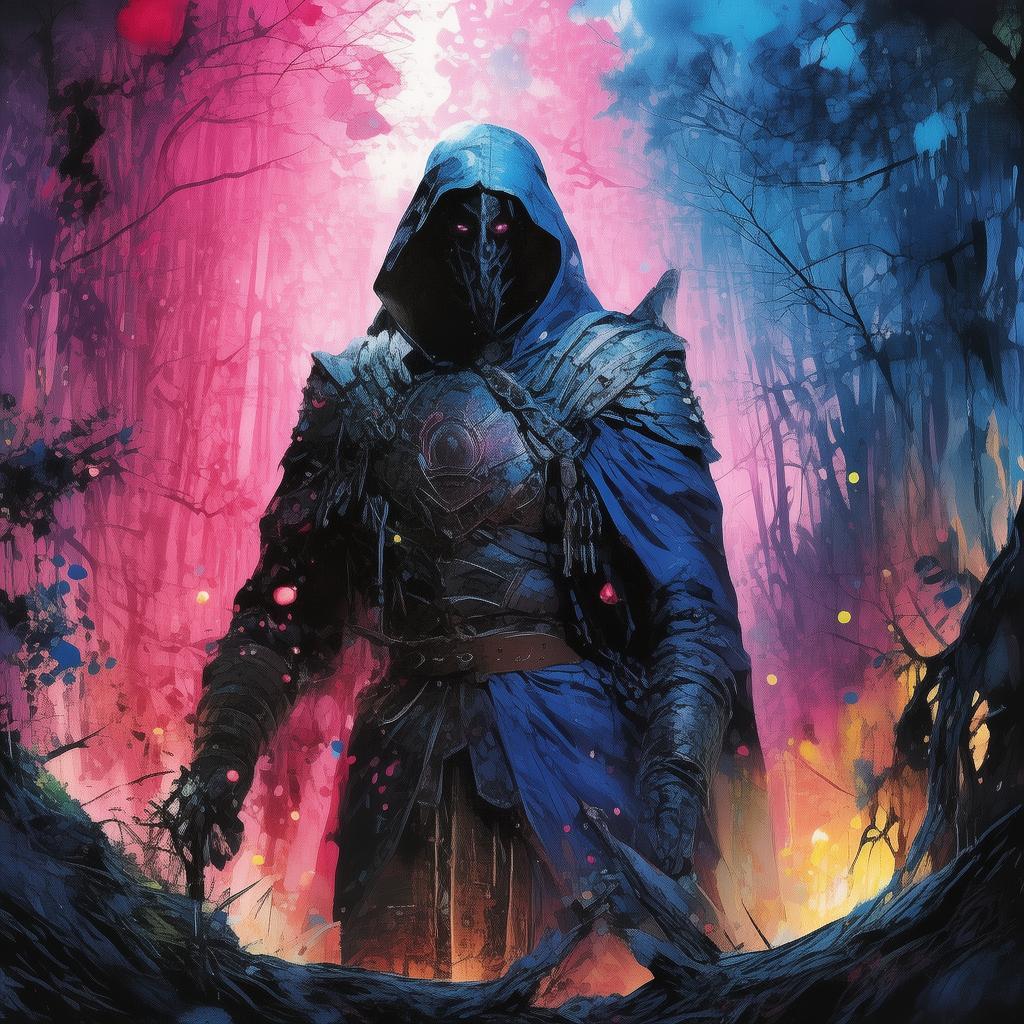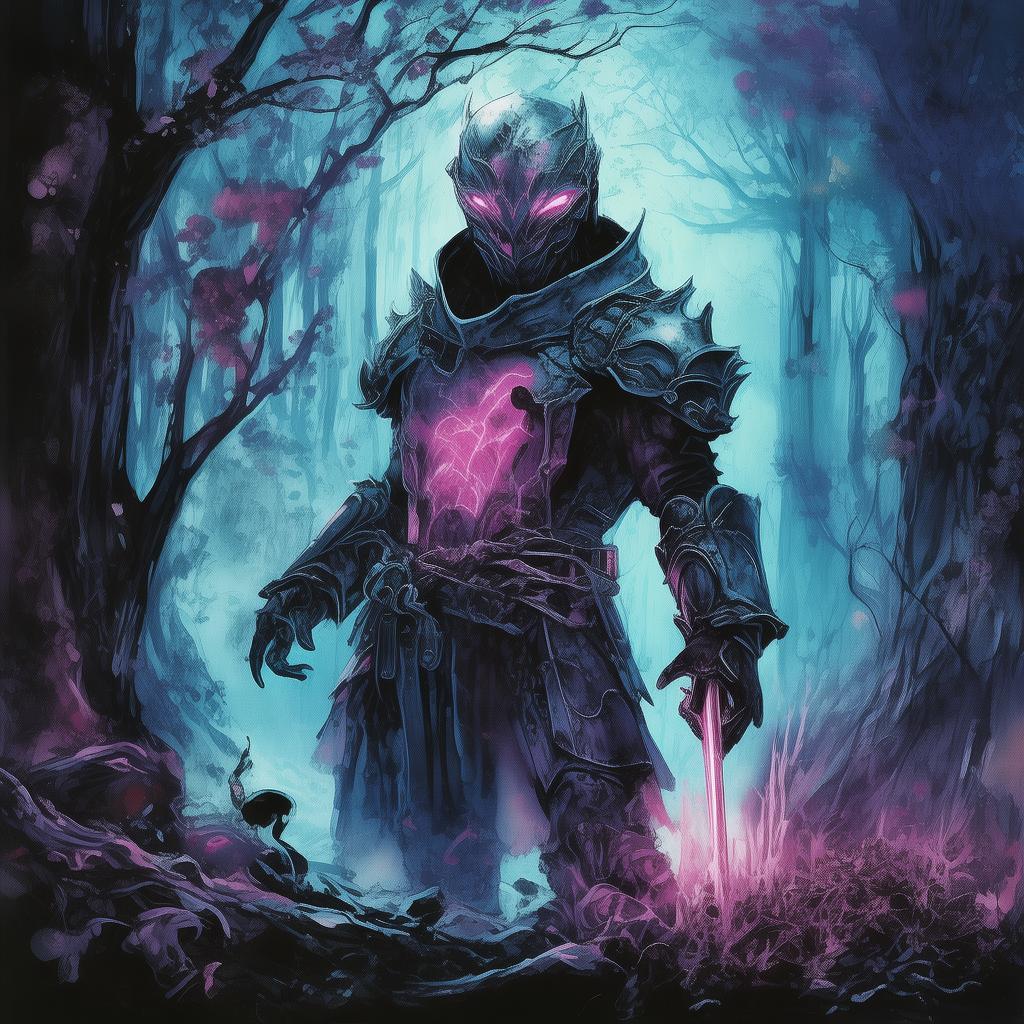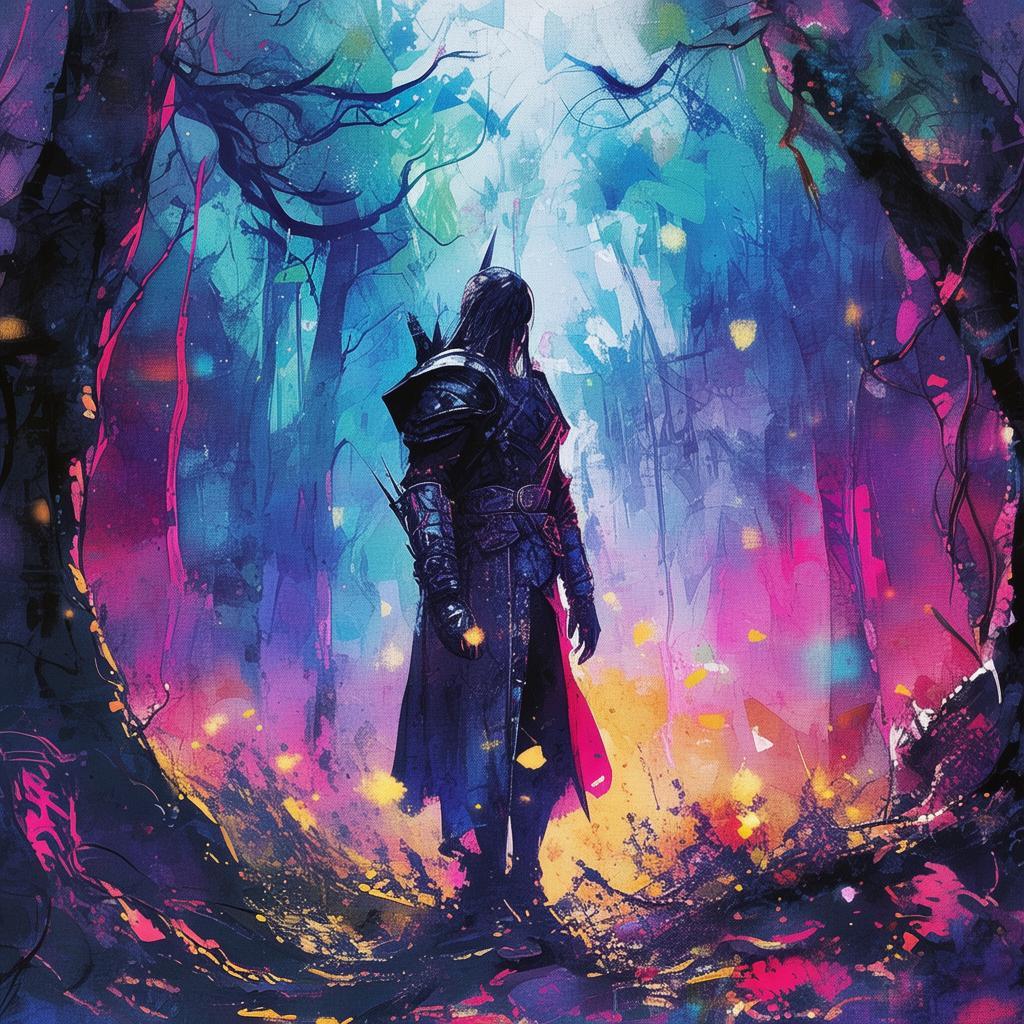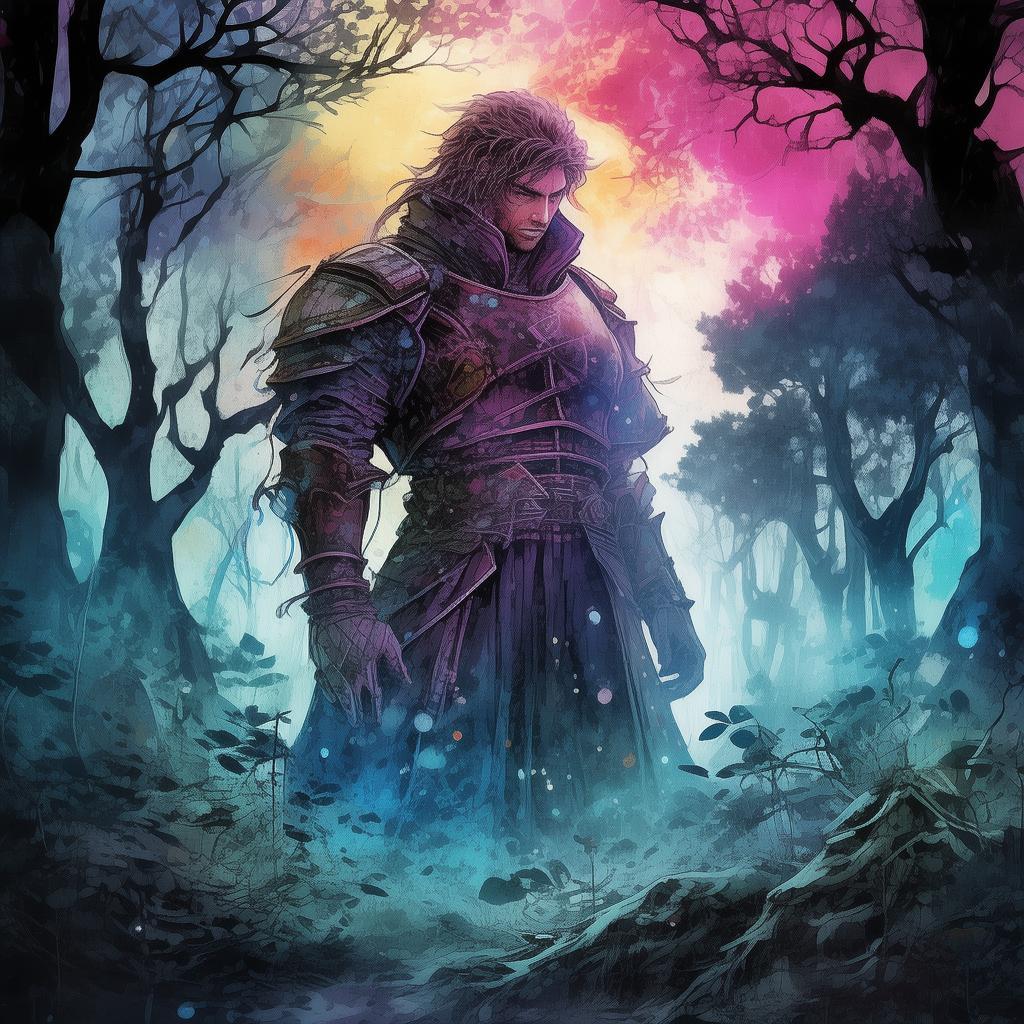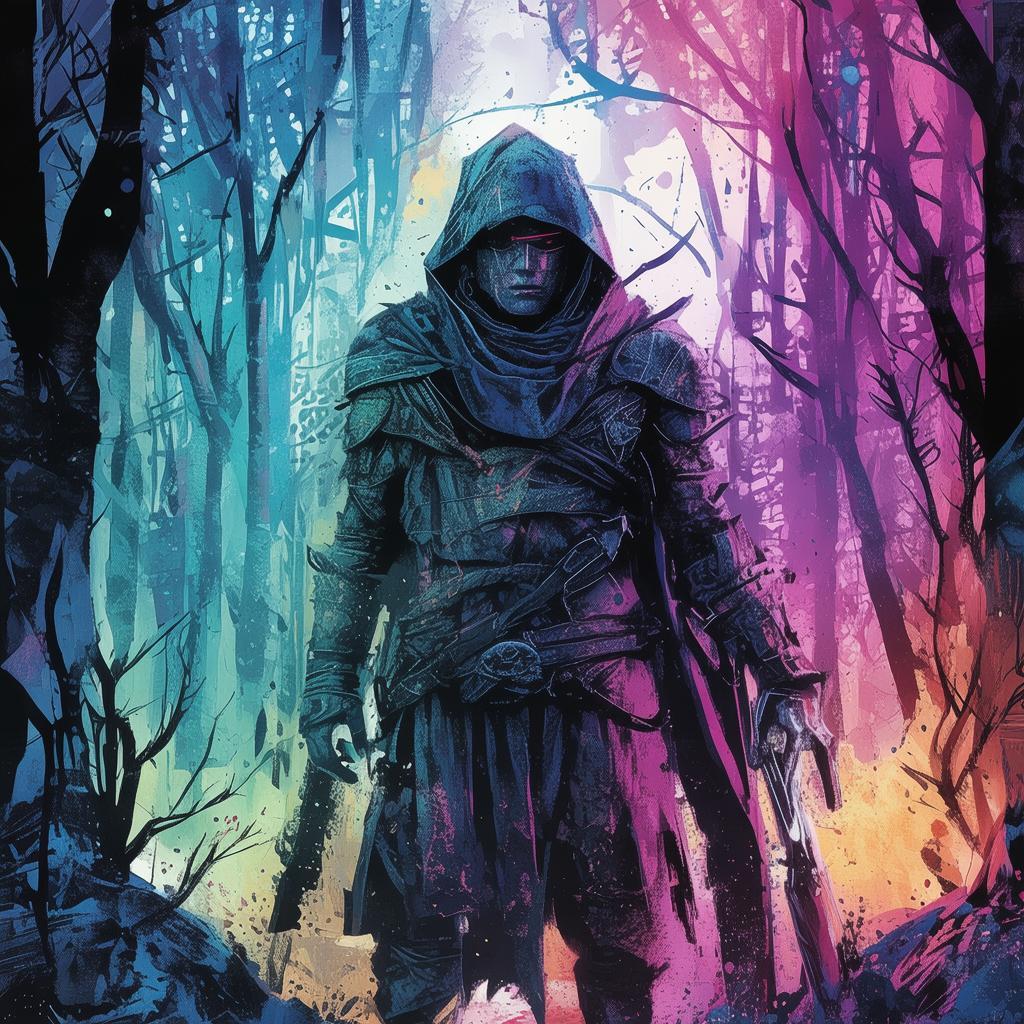The Midsummer's Moon: A Lullaby for the New Dawn
In the heart of the ancient forest, where the trees whispered secrets of old, there lay a village shrouded in the magic of the Midsummer's Moon. This was a time when the moon's glow painted the night sky in hues of gold and silver, and the air was thick with the scent of blooming nightshade flowers. The villagers spoke of the Midsummer's Moon as a beacon of hope, a vessel of wishes, and a symbol of the eternal dance between light and darkness.
Amara, a young girl with eyes like the moon itself, lived in this village. Her lullabies were known throughout the land, soothing the hearts of the weary and calming the restless. But Amara's lullaby held a power beyond the ordinary, a power that could change the very fabric of the world.
One Midsummer's Eve, as the villagers gathered around the bonfire, Amara sang her most beautiful lullaby. The melody soared into the night, and the villagers felt a warmth that spread through their bones. In that moment, a wish was made. A wish for peace, for love, and for a new dawn.
The wish was granted, but not as the villagers had hoped. Instead, the Midsummer's Moon chose to grant it to a dark sorcerer who had been lurking in the shadows, his heart filled with malice and his eyes hungry for power. The sorcerer's wish was for eternal life, and with the Midsummer's Moon's magic, he became an immortal being, his soul twisted and corrupted.
Amara, feeling the weight of the sorcerer's curse, knew that she had to act. She sought the wisdom of the village elder, an ancient woman who had seen many Midsummer's Moons rise and fall. The elder revealed to Amara that the sorcerer's curse could only be broken by the lullaby that had granted it, sung by the one who had made the wish.
Determined to save her village and end the sorcerer's reign of terror, Amara set out on a perilous journey. She traveled through treacherous forests, crossed rivers of fire, and faced creatures of darkness. Along the way, she encountered a young man named Eamon, whose eyes mirrored the stars and whose heart was as pure as the morning dew.
Eamon, a guardian of the forest, had been tasked with protecting the Midsummer's Moon from those who would misuse its power. He had been searching for the one who had made the fateful wish, believing that the key to undoing the curse lay within the singer's heart.
Together, Amara and Eamon faced the sorcerer's minions, each battle more intense than the last. They discovered that the sorcerer's power was not just in his immortality but in the fear and despair he had sown among the villagers. It was this fear that kept the curse in place.
As the final battle loomed, Amara and Eamon returned to the village, where the bonfire still burned. Amara stood before the flames, her voice trembling but strong. She began to sing, her lullaby weaving a tapestry of light and hope. The villagers, who had once been bound by fear, now felt a surge of courage and love.

The sorcerer, sensing the power of the lullaby, unleashed his darkest magic. The village was enveloped in a blinding light, and the ground trembled. But Amara's voice grew louder, her melody piercing through the darkness. Eamon, with a heart full of love, stepped forward, his sword raised against the sorcerer.
In a climactic battle, the sorcerer was defeated, his dark magic shattered by the light of Amara's lullaby. The curse was lifted, and the village was saved. The Midsummer's Moon, now free from the sorcerer's grasp, shone down upon the village, casting a golden glow over everything.
Amara and Eamon, their bond strengthened by their shared struggle, stood together as the new dawn broke. The villagers emerged from their homes, their faces alight with hope and gratitude. The Midsummer's Moon, a symbol of rebirth and renewal, continued to watch over the village, its magic a testament to the power of love and the courage of one young girl's lullaby.
The legend of Amara and the Midsummer's Moon spread far and wide, a tale of love, betrayal, and the eternal dance between light and darkness. And so, the village thrived, its people living in harmony, forever grateful for the lullaby that had brought them a new dawn.
✨ Original Statement ✨
All articles published on this website (including but not limited to text, images, videos, and other content) are original or authorized for reposting and are protected by relevant laws. Without the explicit written permission of this website, no individual or organization may copy, modify, repost, or use the content for commercial purposes.
If you need to quote or cooperate, please contact this site for authorization. We reserve the right to pursue legal responsibility for any unauthorized use.
Hereby declared.


